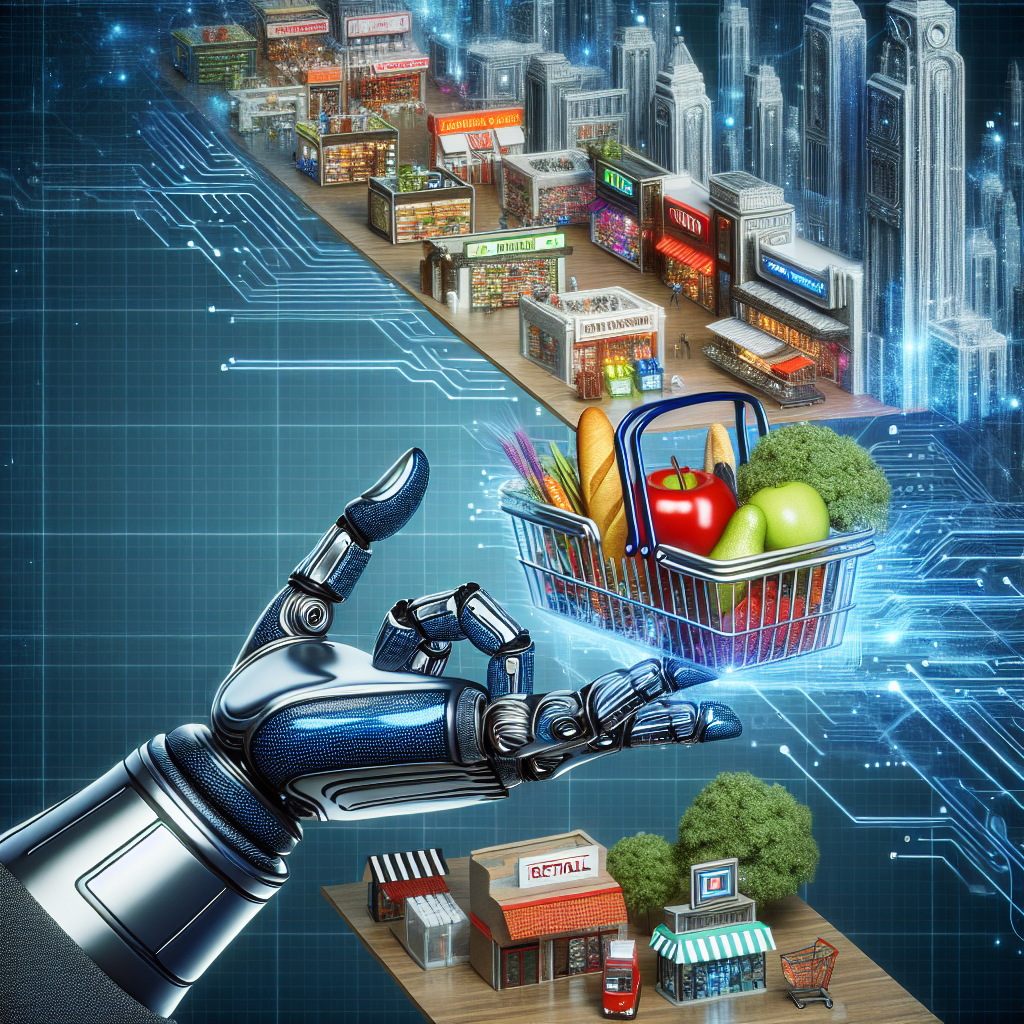AI Integration: A Game Changer for Retail
In recent years, artificial intelligence (AI) has become increasingly prevalent in various industries, and retail is no exception. AI integration in retail has transformed the way businesses operate, optimizing processes, improving customer experiences, and driving sales. From personalized marketing to inventory management, AI has revolutionized the retail sector, making it more efficient and competitive. In this article, we will explore the impact of AI integration in retail and how it is changing the game for businesses in the industry.
Personalized Marketing
One of the key benefits of AI integration in retail is its ability to personalize marketing efforts. AI algorithms can analyze customer data, such as purchase history, browsing behavior, and demographics, to create targeted marketing campaigns. These campaigns can be tailored to individual customers, offering product recommendations, promotions, and discounts that are more likely to resonate with them. This level of personalization can significantly improve customer engagement and drive sales.
For example, AI-powered recommendation engines can suggest products based on a customer’s past purchases or preferences, increasing the likelihood of a sale. These recommendations can be delivered through various channels, such as email, social media, or the company’s website, creating a seamless shopping experience for the customer. Additionally, AI can analyze customer feedback and sentiment to improve products and services, leading to higher customer satisfaction and loyalty.
Inventory Management
AI integration in retail has also transformed inventory management processes. AI algorithms can analyze sales data, market trends, and other factors to predict demand and optimize inventory levels. This can help retailers avoid stockouts and overstock situations, reducing costs and improving efficiency. AI can also automate the replenishment process, ensuring that products are restocked in a timely manner to meet customer demand.
Furthermore, AI-powered inventory management systems can identify slow-moving or obsolete inventory, enabling retailers to make data-driven decisions on pricing, promotions, or liquidation strategies. This can help retailers maximize profits and minimize losses, ultimately improving the bottom line. Overall, AI integration in inventory management can streamline operations, increase efficiency, and drive profitability for retail businesses.
Customer Service
AI has also revolutionized customer service in the retail industry. Chatbots and virtual assistants powered by AI can handle customer inquiries, provide product information, process orders, and resolve issues in real-time. This can significantly reduce response times, improve customer satisfaction, and free up human agents to focus on more complex tasks. AI-powered customer service solutions can also learn from interactions with customers, continuously improving their performance and accuracy.
Additionally, AI can analyze customer data to anticipate their needs and preferences, enabling retailers to provide proactive customer service. For example, AI can predict when a customer is likely to run out of a certain product and offer a replenishment reminder or discount. This level of personalized service can enhance the customer experience and foster loyalty.
Loss Prevention
AI integration in retail can also help prevent losses due to theft or fraud. AI-powered video analytics systems can monitor in-store cameras in real-time to detect suspicious behavior, such as shoplifting or employee theft. These systems can alert store staff or security personnel to intervene before a theft occurs, reducing losses and improving store security.
Furthermore, AI can analyze transaction data to detect fraudulent activities, such as stolen credit card information or identity theft. AI algorithms can flag suspicious transactions for further investigation, helping retailers prevent financial losses and protect customer data. Overall, AI integration in loss prevention can enhance store security, reduce losses, and build trust with customers.
FAQs
Q: How can AI help retailers improve their marketing efforts?
A: AI can analyze customer data to create personalized marketing campaigns, such as product recommendations, promotions, and discounts tailored to individual customers. This can increase customer engagement and drive sales.
Q: How can AI optimize inventory management for retailers?
A: AI algorithms can analyze sales data and market trends to predict demand and optimize inventory levels. This can help retailers avoid stockouts and overstock situations, reducing costs and improving efficiency.
Q: How can AI-powered customer service solutions benefit retailers?
A: AI-powered chatbots and virtual assistants can handle customer inquiries, provide product information, process orders, and resolve issues in real-time. This can reduce response times, improve customer satisfaction, and free up human agents for more complex tasks.
Q: How can AI help retailers prevent losses due to theft or fraud?
A: AI-powered video analytics systems can monitor in-store cameras to detect suspicious behavior, such as shoplifting or employee theft. AI can also analyze transaction data to detect fraudulent activities, such as stolen credit card information or identity theft.
In conclusion, AI integration has become a game changer for the retail industry, transforming marketing, inventory management, customer service, and loss prevention processes. By leveraging the power of AI, retailers can enhance customer experiences, improve operational efficiency, and drive profitability. As AI continues to evolve, its impact on the retail sector is expected to grow, making it essential for businesses to embrace AI integration to stay competitive in the market.

